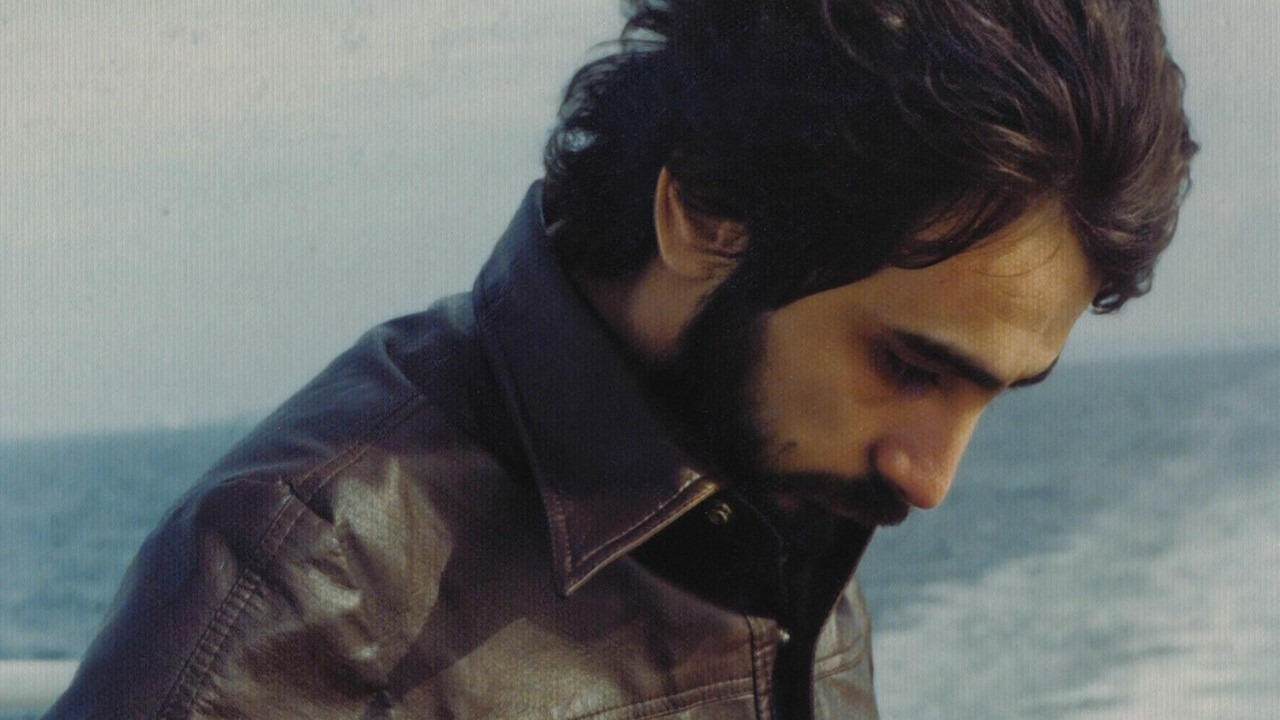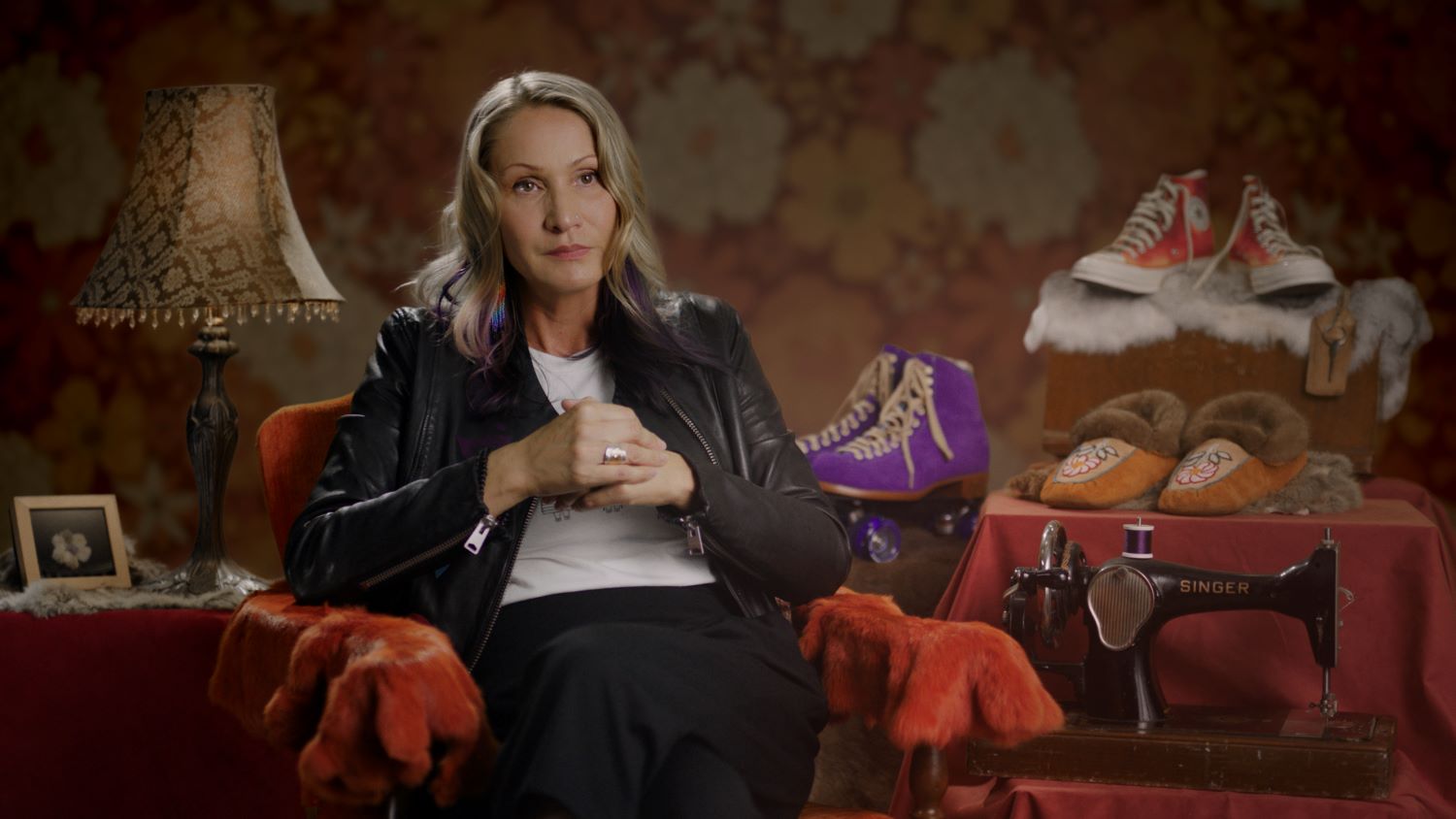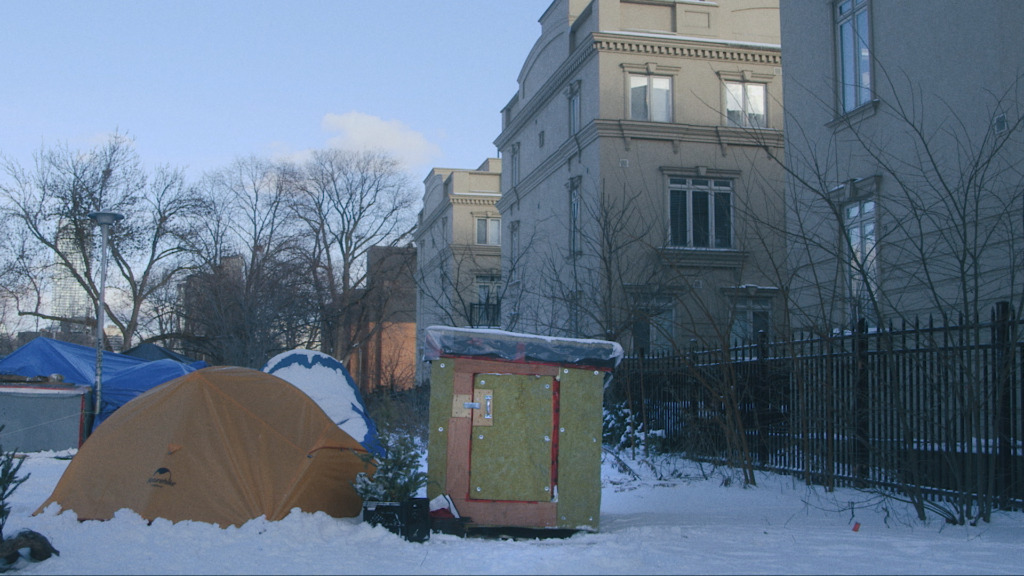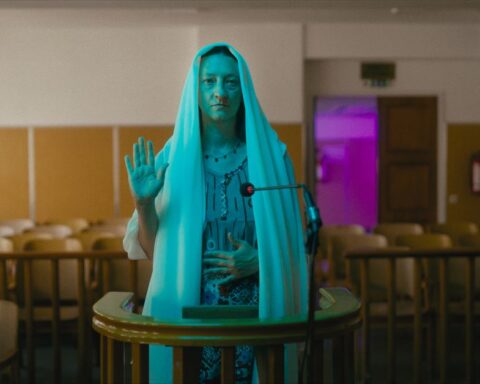Physician, Heal Thyself
(Canada, 78 min.)
Dir. Asher Penn
“Healing comes from the word ‘wholeness,’” says Dr. Gabor Maté. “Wholeness means knowing, integrating, accepting, and reconciling all your different parts. It doesn’t mean perfection.”
Dr. Maté reflects on the healing process in the appropriately titled documentary Physician, Heal Thyself. The renowned Vancouver-based writer, physician, and speaker takes some of his own medicine in this biographical portrait. The doc, which world premieres at the Vancouver International Film Festival, illuminates the stories that inspired Maté’s books like When the Body Says No and The Myth of Normal.
The film offers a straightforward account of Maté’s life from birth to present. His earliest days are important, though, as Maté reflects upon being born into wartime Hungary. In one of his childhood photos, Maté’s mother holds him as a baby. The yellow star that Jews were forced to wear figures prominently in the frame. Maté says that his mother insisted on keeping it on for the photo so that her son could see the truth of the world into which he was born. Only an infant during the Holocaust, survivors’ guilt might not be something he personally carries, but the collective trauma of the experience filters through his family life.
Developing a Worldview
A dozen years later, Maté’s family makes the trip to Canada and lands in Vancouver. Maté tells how he felt like an outsider in Vancouver’s minority Jewish community. The move, the displacement, and the diversity of Vancouver afforded him perspective at an early age. As his story continues, he tells how he channelled that perspective into a rabble-rousing column at the University of British Columbia. Penning lefty diatribes in the school newspaper The Ubyssey, he gained notoriety for his unconventional wisdom. This knack for telling it like it is would continue as he honed his voice in columns for The Sun and other outlets.
Physician, Heal Thyself draws upon a master interview with Maté as he plots his narrative. Shot against a black backdrop, the no-frills set-up echoes Maté’s even-handed tone. Director Asher Penn, in his feature debut, peppers Maté’s narrative with some archival. Photographs and collections of Maté’s writing make the tale a bit more dynamic and illustrate how his methods require deep engagement with the past.
But Maté’s yarn has its own twists and turns. He tells how he caused a rift with his parents by doing a 180 on Zionism and finding sympathy with Palestinians. In his interview, he explains how he recognized the trauma of displacement and how the formation of a Jewish state didn’t inspire the healing process it sought to have. His parents, he notes, were livid and felt betrayed by his opinion.
Confronting Addiction
Similarly, Maté’s take on his family life offers context for his later work. He shares how he and his wife, Rae, married quite young while he was a teacher. This work as a teacher informs much of his therapy, as does the family time he later lost and can never recover. Maté’s reflections on being a family physician and committing himself to a 24/7 workweek speak to his understanding of addiction. He acknowledges that workaholism consumed his life, leading to a short-temper with his children and distance in his marriage.
This considerate perspective on addiction segues into the portion of Physician, Heal Thyself that gets to the influential work. All this experience—addiction, being a family physician, and recognizing people at the margins—informs his book In the Realm of Hungry Ghosts: Close Encounters with Addiction. The book draws upon Maté’s work with addicts in Vancouver’s Eastside. It offers a holistic approach to understanding the trauma-informed nature of addiction and brought Maté to shelters and clinics where he drew attention to safe injection and harm-reduction strategies. The book underscores the vicious cycle of insatiable hunger and the sense of invisibility that feeds it.
Wellness through Wholeness
If Maté’s philosophy towards safe-injection sites with this book proved controversial, then his next work may be his most notable infamy. Physician, Heal Thyself takes a jaunt to South America with the chapter of Maté’s story that deals with ayahuasca. The psychoactive tonic draws upon traditional shamanistic healing methods and the holistic practices of Amazonian tribes. Maté explains how his use of the drug proved effective, if controversially so, when he brought it to Vancouver.
One doesn’t necessarily need to be a follower of the church of Dr. Gabor Maté to recognize the moral of his story. His story preaches openness and empathy as key therapeutic ingredients. Penn generally leaves the account to the star’s point of view, although elements of the naysayers’ perspectives are evident in archival clips that punctuate the film. Physician, Heal Thyself isn’t looking to defend or debunk Maté’s practices. Rather, this is a probing look at the origin story of an influential mind.
Maté’s philosophy comes from a deep understanding of trauma and a personal recognition of the violence that addiction brings on one’s own life. His thoughtful account positions himself as the subject of his own medicine, proof that healing is a long and multi-faceted journey. Even if the film has only one voice, it feels appropriately “whole.”













